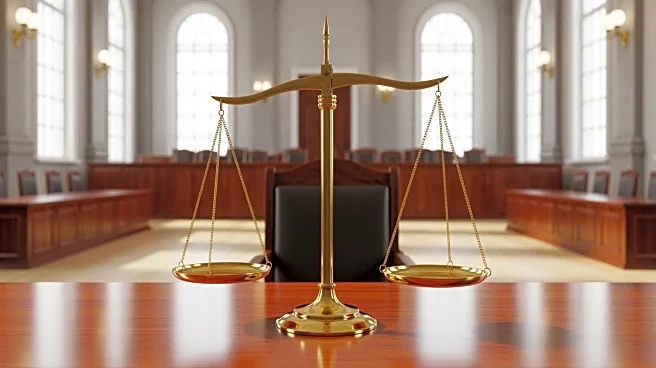What's Happening?
The Supreme Court is set to hear oral arguments regarding President Trump's imposition of tariffs on nearly all goods imported into the United States, a move he announced on April 2, referred to as 'Liberation
Day.' These tariffs have significant implications for the American economy, global trade, and foreign policy. The case challenges the extent of presidential power to regulate international trade without congressional approval. Learning Resources, a family-owned business producing educational toys overseas, is one of the plaintiffs. The company argues that the tariffs, which have drastically increased their costs, are illegal under the International Emergency Economic Powers Act. This act, according to the White House, allows the president to regulate imports and exports in response to extraordinary threats from abroad.
Why It's Important?
The outcome of this Supreme Court case could redefine the balance of power between the presidency and Congress regarding trade regulation. If the court upholds Trump's tariffs, it may set a precedent for future presidents to impose similar economic measures unilaterally, potentially affecting U.S. businesses and consumers. Small businesses like Learning Resources face increased financial burdens due to these tariffs, which could lead to higher consumer prices and reduced competitiveness in global markets. The decision will also impact international relations, as tariffs are a critical tool in trade negotiations and foreign policy.
What's Next?
The Supreme Court's decision will determine whether President Trump's tariffs remain in effect, influencing future trade policies and presidential powers. If the court rules against the tariffs, it could lead to their removal, providing relief to affected businesses and possibly altering the U.S. approach to international trade. Stakeholders, including businesses, policymakers, and international trade partners, are closely monitoring the case, as its outcome will have far-reaching implications for economic strategy and governance.
Beyond the Headlines
The case raises questions about the ethical and legal dimensions of executive power in economic policy. It challenges the traditional legislative process for taxation and trade regulation, highlighting concerns about 'taxation without representation.' The decision could influence public trust in government institutions and the perceived integrity of the rule of law in the U.S.









